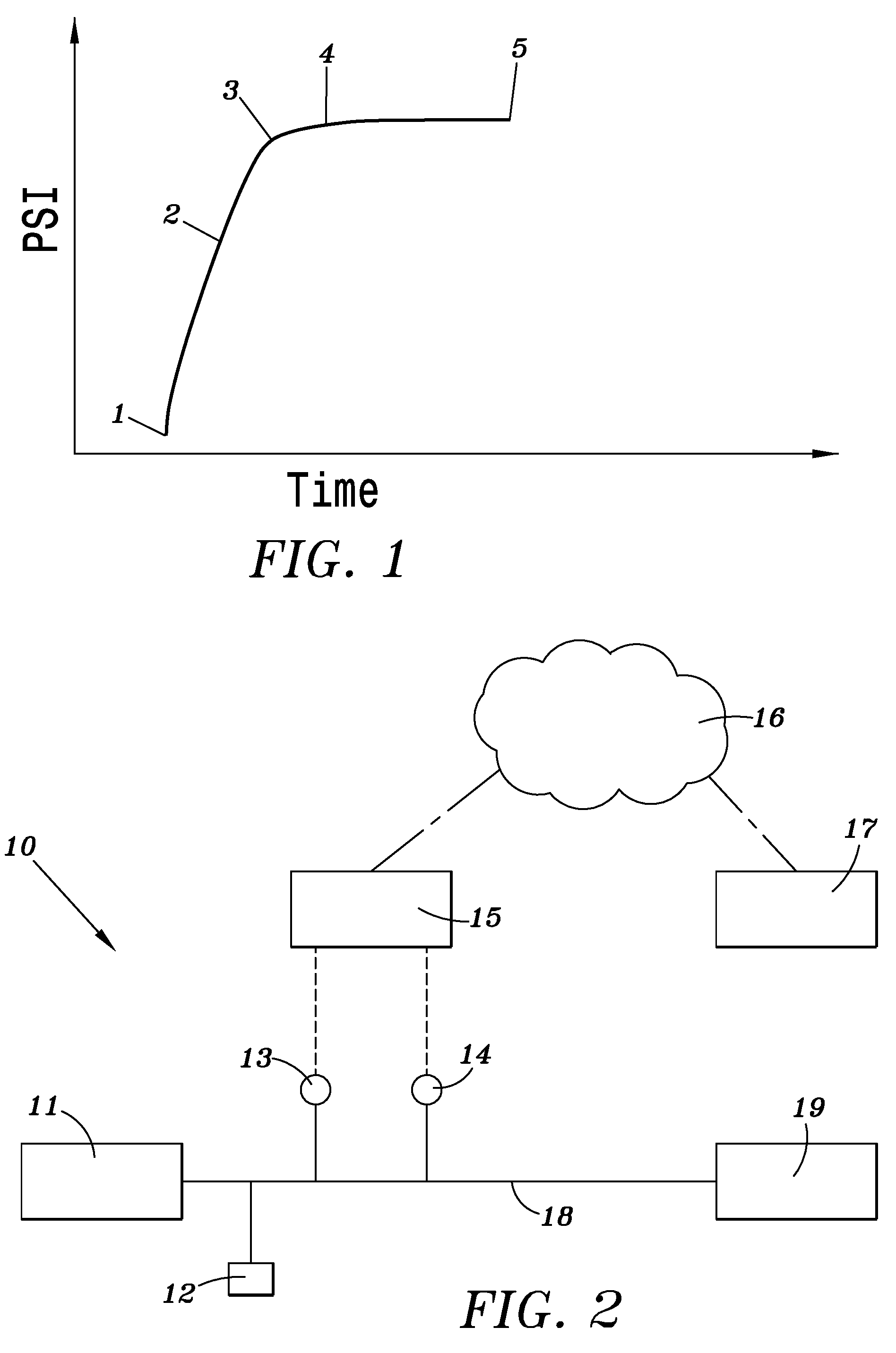Method for Testing for Fluid Leaks
a fluid leakage and testing method technology, applied in the direction of survey, instruments, borehole/well accessories, etc., can solve the problems of widely accepted leakage rate measurement using indirect result of pressure decay, and achieve the effect of reducing the time period for measuring the amount of intensifying fluid loss and reducing costs
- Summary
- Abstract
- Description
- Claims
- Application Information
AI Technical Summary
Benefits of technology
Problems solved by technology
Method used
Image
Examples
Embodiment Construction
[0013]FIGS. 1 and 2 illustrates an embodiment of the test cycle. The pressure in the BOP or system 19 which may contain trapped air is raised from point 1 to point 4 as shown in FIG. 1. Point 4 represents the test pressure level. As the test pressure increases from point 3 to point 4, the incremental pressure change of the intensifying pressure is measured by a pressure sensor 13 and the incremental volume change of intensifying fluid is also monitored by a volume meter 14 positioned in flow conduit 18 which leads to BOP or system 19. During a typical test cycle an isolated area of the BOP which may include valves and safety devices is pressurized and volume rates and pressure of the intensifying fluid are recorded by the sensors 13 and 14. Thus information is sent to a computer processor 15.
[0014]The Apparent Compressibility Factor ACF is calculated by the following formula.
Va / PSIA=ACF
[0015]Where Va=Incremental volume change of intensifying fluid, PSIA=Incremental pressure change o...
PUM
 Login to View More
Login to View More Abstract
Description
Claims
Application Information
 Login to View More
Login to View More - R&D
- Intellectual Property
- Life Sciences
- Materials
- Tech Scout
- Unparalleled Data Quality
- Higher Quality Content
- 60% Fewer Hallucinations
Browse by: Latest US Patents, China's latest patents, Technical Efficacy Thesaurus, Application Domain, Technology Topic, Popular Technical Reports.
© 2025 PatSnap. All rights reserved.Legal|Privacy policy|Modern Slavery Act Transparency Statement|Sitemap|About US| Contact US: help@patsnap.com

